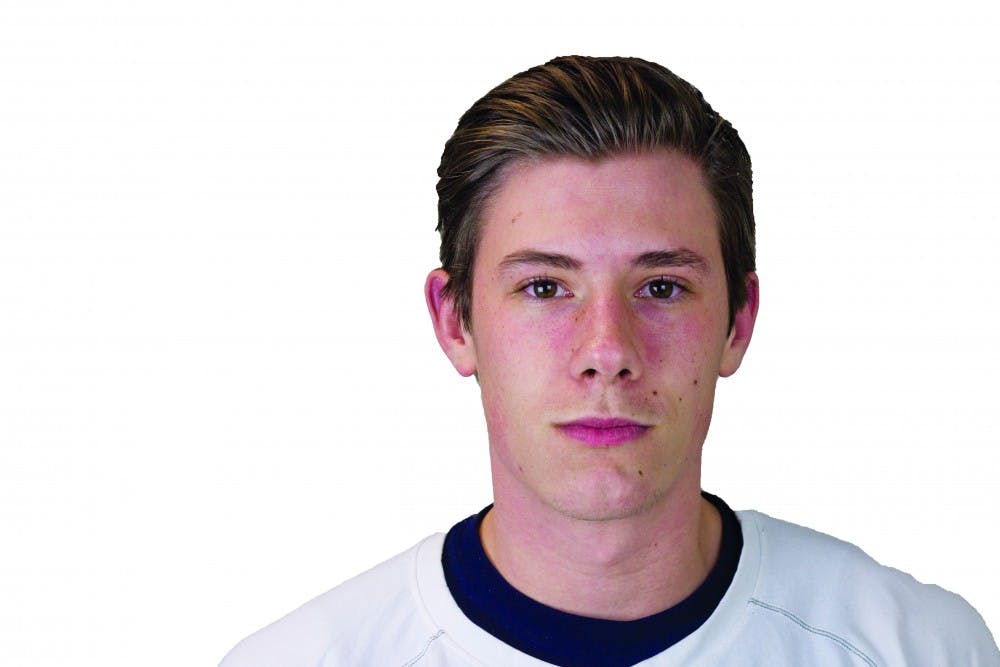COLUMN: Only education can cool the tensions in Europe
In January, I wrote my first and only column responding to the terrorist attack on French satire magazine Charlie Hebdo, which claimed the lives of 12 satirists and five others in the Ile-de-France region.
I’m extremely saddened to be writing another.
Saddened not only for the abnormally large and unnecessary loss of life around the world, Friday, but because tensions between races and religions have only grown more severe since the Charlie Hebdo shooting.
In Paris alone, 129 lives were brutally ended and an additional 352 were injured in terrorist attacks at six different locations throughout the city, which were claimed by Daesh (The Islamic State—I do not recognize the legitimacy of the caliphate of the self-proclaimed “Islamic State in Syria.”)
In southern-Beirut, Daesh murdered another 43 and wounded hundreds, targeting Shia Muslims with two suicide bombers.
On April 3, Al-Shabaab, a Somalian based Al-Queda affiliate with allegiances to Daesh, murdered 147 people at Garissa University in north-eastern Kenya, mainly targeting Christians. The attack was largely unnoticed by the American public.
Domestically, this week proved the United States is seemingly struggling to keep its deep-rooted racial tensions out of even its highest institutions of academics and scholarship, as shown by the situation taking place on the campus of the University of Missouri in Columbia.
The list could go on.
The world is coming to a boiling point, which can’t be cooled by tossing in a few ice cubes.
It’s going to take more than Twitter hashtags, protests, candle light vigils and empty apologies.
Diffusing the tensions between races and religions, internationally and domestically, is going to take more than rioting, looting and forcing racists like Donald Sterling to sell the Clippers and Tim Wolfe to resign as president of Missouri.
It is certainly going to take more than spraying more Western bullets and bombs in the Middle East and starting a war with Daesh to rid the world of terrorism.
If we eliminate Daesh with bullets, the next radicalized group and generation will send bullets back, because war with the West is what they grew up knowing and the discourse of war with the West is what they’ve heard.
We’ve been trying to end a long lasting problem with short-term fixes, tossing ice cubes in a boiling pot of water that has a raging fire of ignorance fueling it.
We have to rethink how we approach racial and religious tolerance and begin to actually make concrete changes in America and around the world to curb institutional racism, discrimination and prejudice.
Change needs to begin with how we educate youth about the historic facts of how the world got to the place it’s at now — understanding how we came to have the racial and religious issues we have today.
We need to teach younger generations to reject the prejudices of their parents and those before us and instill tolerance and understanding by teaching the history behind exactly why minority races feel “othered” by the white Western world.
For example, radical Muslims don’t hate the West and infidels because the Muslim world is full of blood-thirsty savages.
There are historic reasons dating back to the First Crusade in 1096, which began what radicalized Muslims believe is the West’s attack on the “Ummah,” or collective community of Muslims worldwide.
Understanding that secularism has not removed religious influence on the public sphere in areas of the Middle East and the Muslim world is crucial to understanding why radicalized Muslims are so willing to die for their religion in a way unlike any other religion, today.
Just as Catholicism struggled to assimilate and find acceptance in America in the mid-19th century, Islam as a religion is also struggling to assimilate to the norms of the Western world.
We have to educate ourselves, teach ourselves why and use our knowledge to remain tolerant and not generalize entire races and religions in times like these.
Right action is better than knowledge. But in order to do what is right, we must know what is right.







